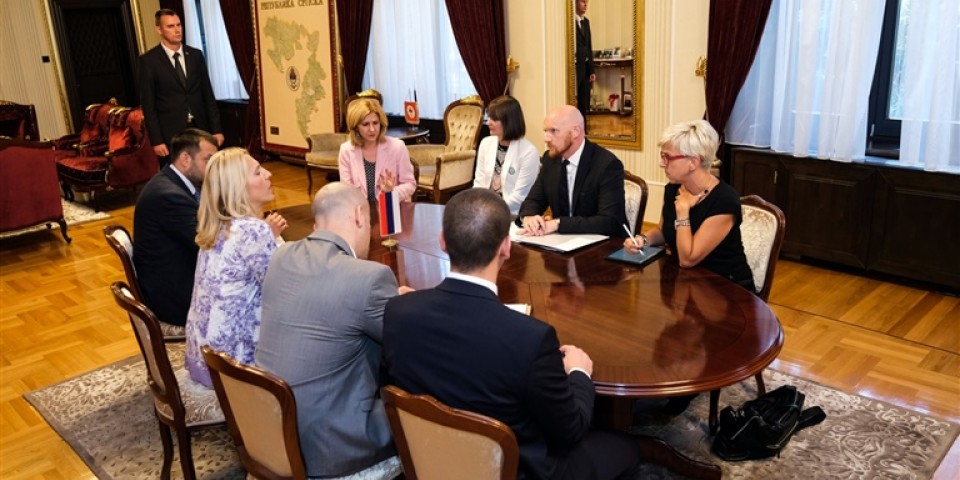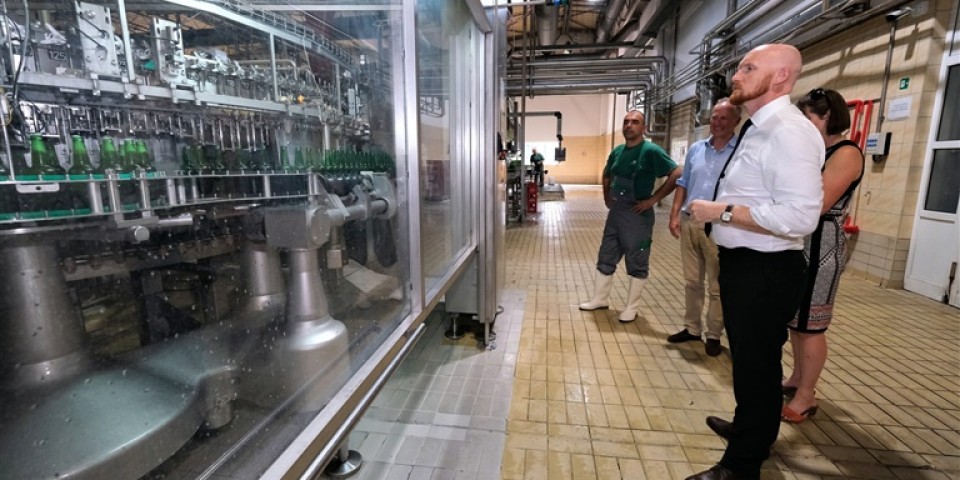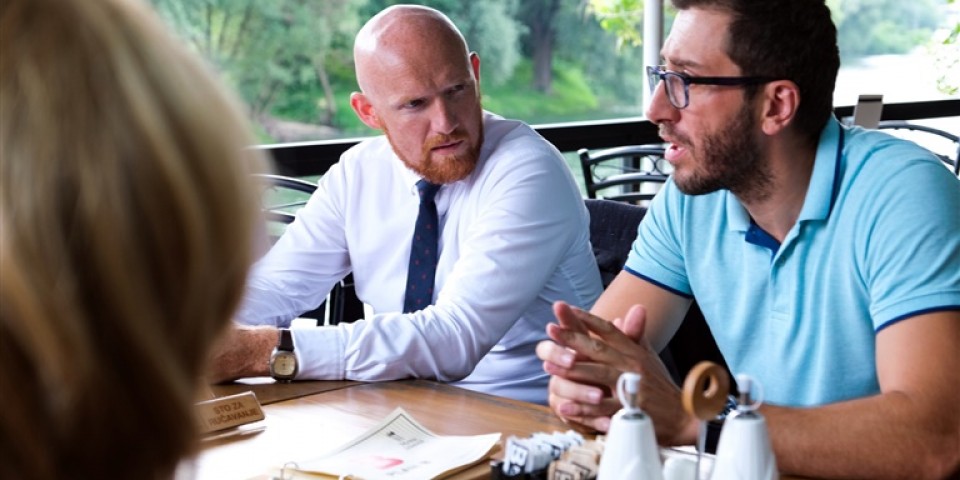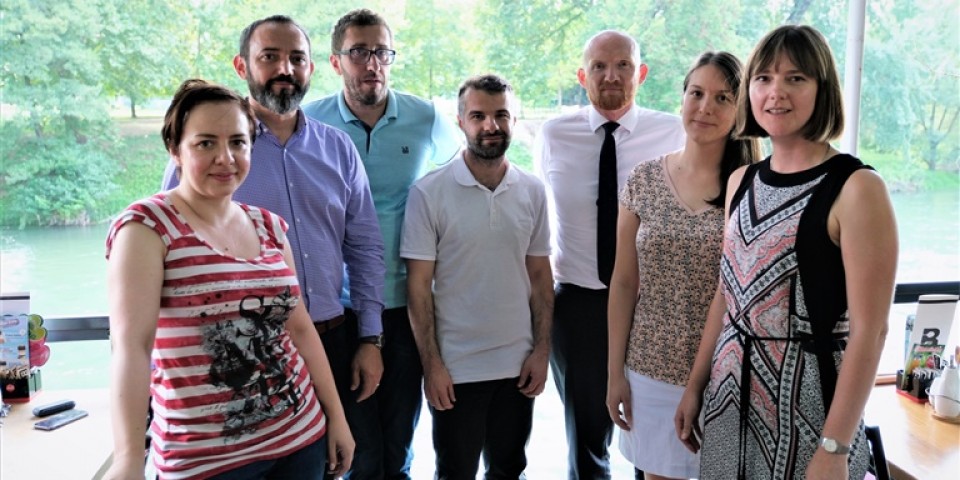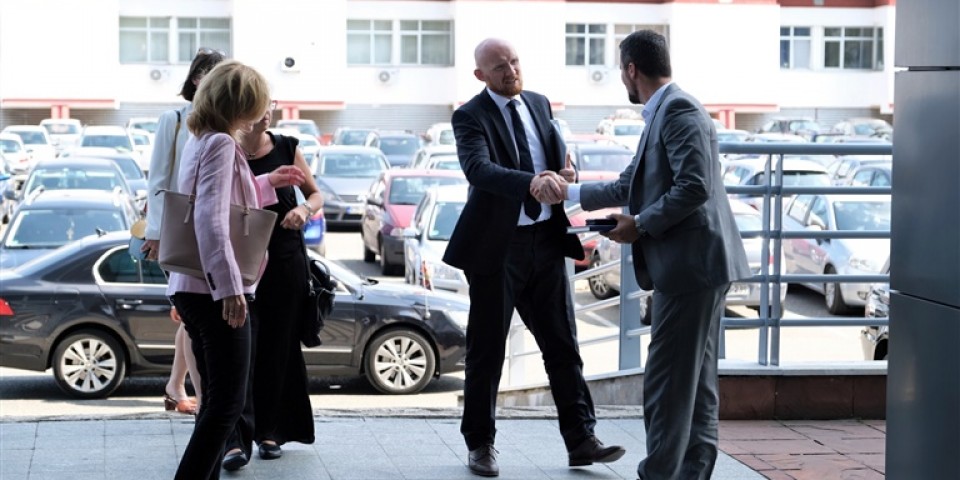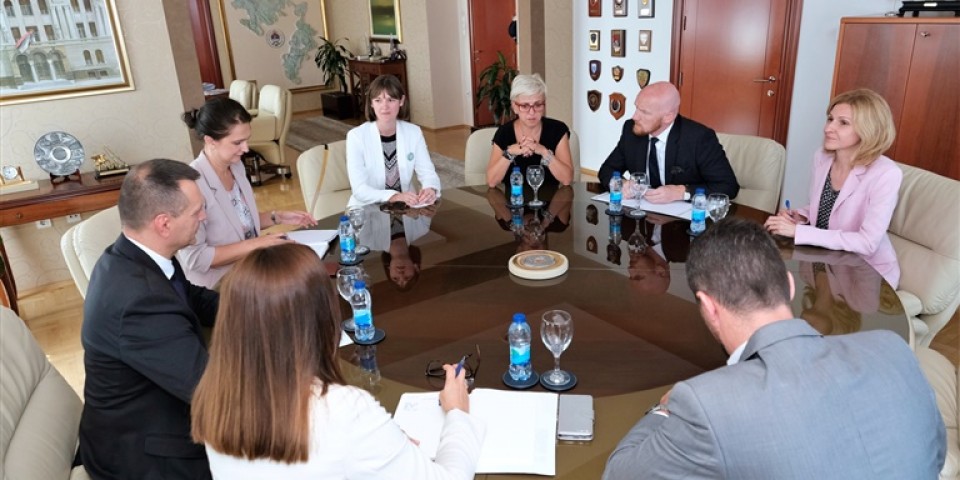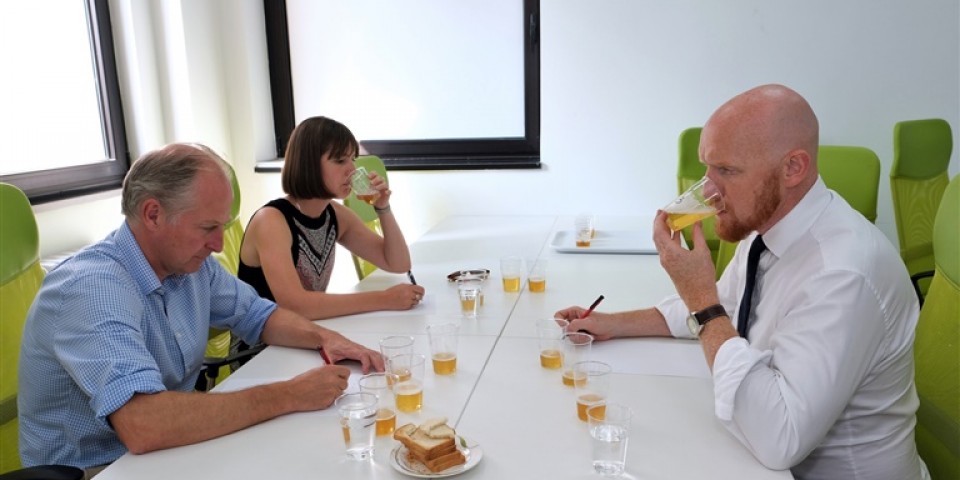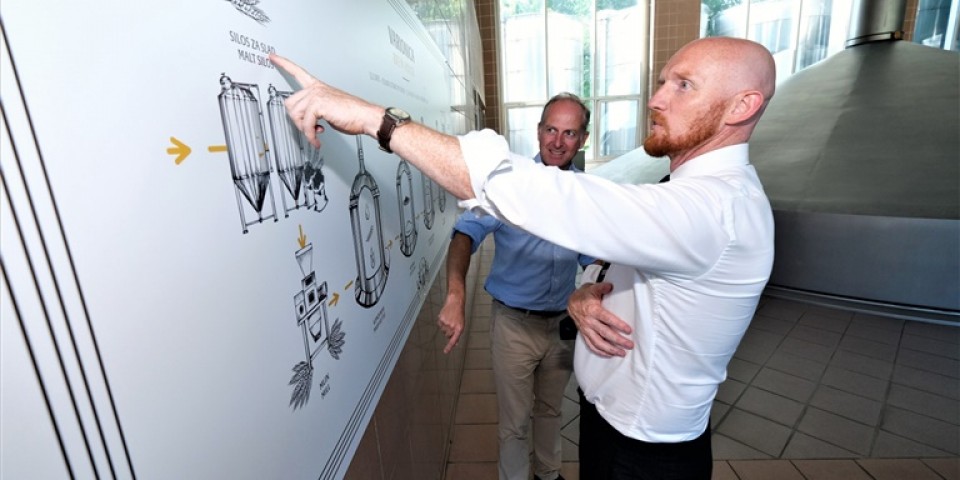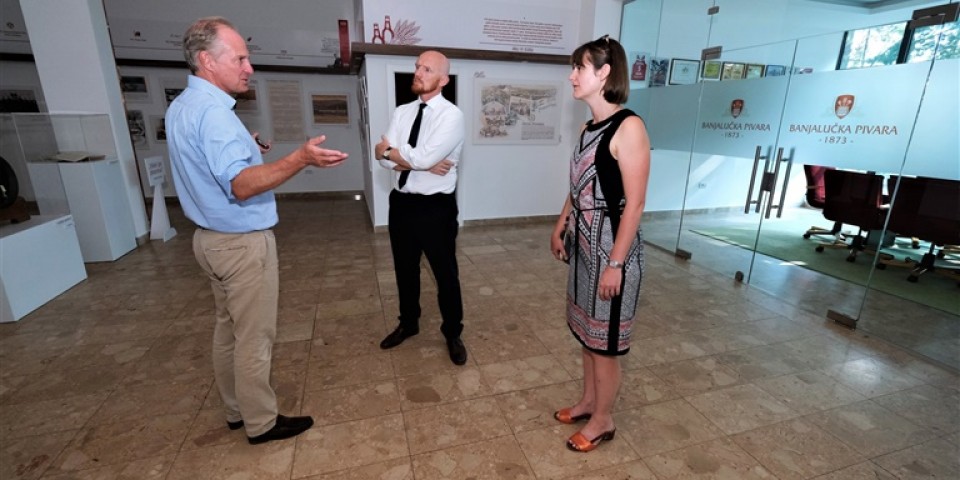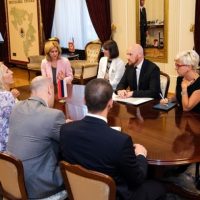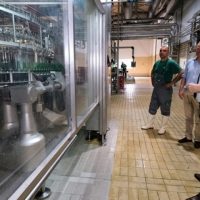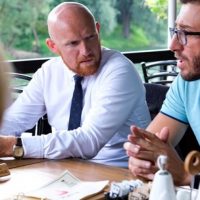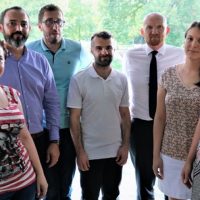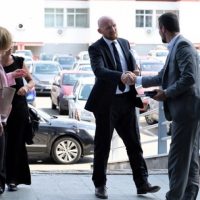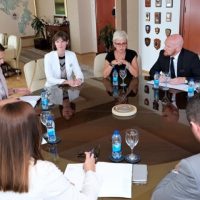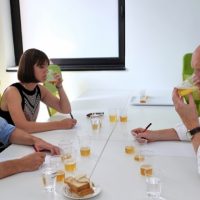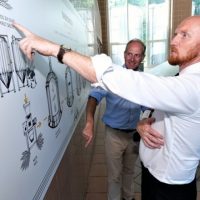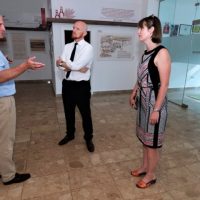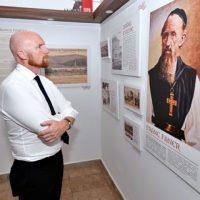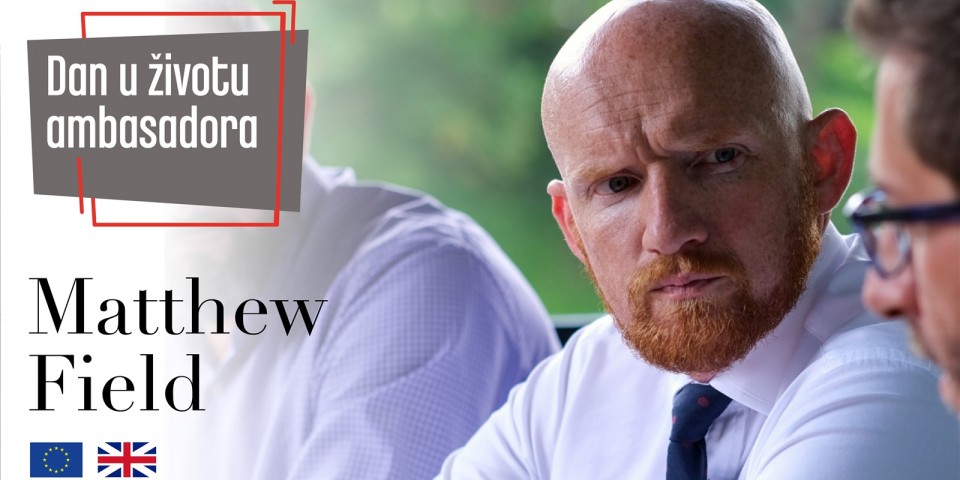
A Day in the Life of an Ambassador Matthew Field
Matthew Field was appointed as Her Majesty’s Ambassador to Bosnia and Herzegovina in August 2018, and no two of his days have been the same. Feeling lucky to have been appointed to represe...
Matthew Field was appointed as Her Majesty’s Ambassador to Bosnia and Herzegovina in August 2018, and no two of his days have been the same. Feeling lucky to have been appointed to represent the United Kingdom in Bosnia and Herzegovina and lead his dedicated and professional Embassy team, Ambassador Field’s days are filled with various activities and field visits showcasing his commitment to activism and supporting the protection of fundamental human rights. We spent a day with the Ambassador during a recent visit to Banja Luka to see what a day in his life looks like.
I have been the British Ambassador to Bosnia and Herzegovina for ten months, and it is fair to say that no two days have ever been the same. I feel very lucky to have been appointed to represent the UK here, and to lead such a dedicated and professional team. As with every day, I am only a small, public-facing part of a much wider effort.
This morning the day starts early. I am up before six in the morning, ready to hit the road at six-thirty, because we have a long drive ahead. I am picked up by the Embassy driver, along with two colleagues who are coming with me to Banja Luka. The journey there and back is particularly long because of the roadworks around Zenica – ask anyone who lives there! – which means a longer and more scenic route ahead.
Usually I can work while travelling in the car, thanks to new Foreign Office laptops which allow me to take my office with me everywhere I go. However, the winding road is beginning to make me feel dizzy, so instead I talk to my colleagues about the meetings ahead, and what we wish to achieve from them. We stop on the Vlašić road at a café with a stunning view of over the River Ugar. I take a quick photo to use on Instagram later, to hopefully show a wider audience the many beautiful corners of this country.
By chance, at the same café is Major General Trischak, the new commander of EUFOR, also on his way to Banja Luka. We grab ten minutes to talk about his first weeks, the UK’s contribution to his important mission, and what we will both be discussing in our meetings that day. We agree to keep in touch, and meet for a proper sit-down soon.
We arrive in Banja Luka in good time for our first meeting, along with a colleague based there in our one-person office. I haven’t seen RS President Zeljka Cvijanovic for a couple of months, and we have a number of things to pick up from the last time we met. We discuss some of the UK’s ongoing cooperation with institutions in the RS, including improvements to the business environment, reforming publicly-owned companies, and the education sector. We compare notes on the factors driving people to leave the country in search of opportunities, and what we can do together to provide those opportunities at home. And I give a strong plug for one of my favourite UK projects, ‘21st Century Schools’, teaching coding, problem solving and critical thinking, in every primary school in the country.
As usual, we are in a rush, with little space in the programme, so we hurry on to our next appointment. I talk to a local contact about the Diplomatic Winter Bazaar, which supports children’s charities all across Bosnia and Herzegovina, and hear their suggestions on some local organisations looking for support. I can make no promises but will pass on the information to the DWB organisers.
Next is lunch with journalists and civil society representatives from around Banja Luka. This neatly brings together the UK’s commitment to media freedom and our work to increase citizen engagement in government priorities. As in many other parts of the region, independent media professionals face significant challenges in doing their job, particularly in situations where they come up against vested political and business interests. I am pleased to see journalist Vladimir Kovačević looking better since he was attacked last year, with at least one of those responsible for this attack sentenced to prison. Having joined the Foreign Office from a large international NGO (Oxfam), I welcome the chance to hear from Transparency International on the fight against corruption.
My final governmental meeting is with RS Minister of the Interior, Dragan Lukac. We have several cooperation projects with levels of government that include the RS, so keeping open a clear channel of communication is important. It also means being able to discuss challenges or concerns, including the recent RS decision to reorganise its police support units into a ‘gendarmerie’.
We then move to see a UK investment in action, at Banja Luka Brewery, which employs more than 300 people. We are shown around by the British Director, Nick Penny, who explains to us the whole process from brewing to bottling. One fact that sticks in my mind is that more than 97% of bottles are recycled, surely making this one of the most environmentally friendly processes imaginable. We finish up with a tasting of some of the excellent products on offer from the brewery.
The journey back to Sarajevo is darker, and therefore less scenic. But we still manage to prepare and publish tweets about the day’s meetings, finalise a written interview with Nezavisne Novine, promote the launch of our Chevening scholarship programme, and run through all of the emails that have come in whilst I was in the meetings. Then it’s home in time for a good night’s sleep, after a 16-hour day, ready for whatever tomorrow holds in store.

